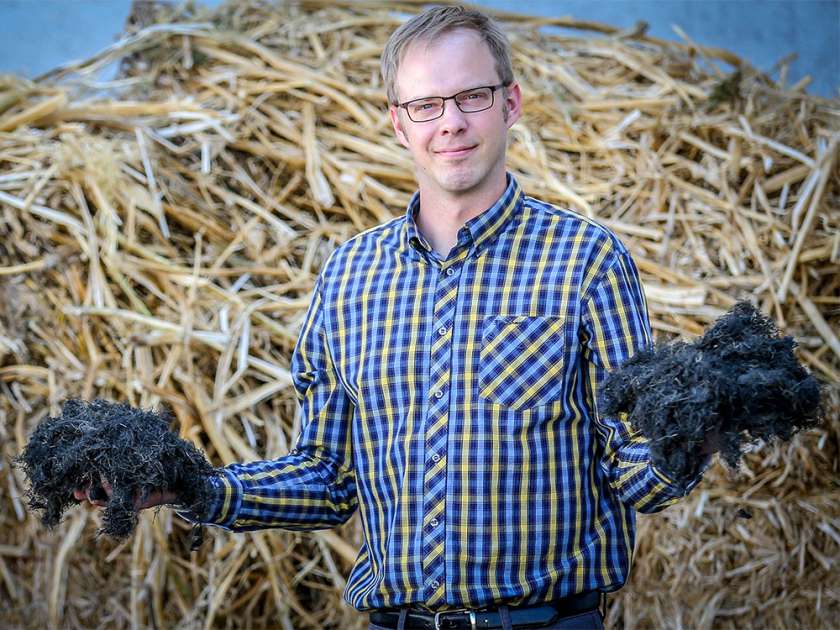You are here
Home 🌿 Cannabis Technology News 🌿 Alberta cannabis to undergird Beijing Winter Olympics 🌿Alberta cannabis to undergird Beijing Winter Olympics

Some Alberta cannabis cultivators will be fuelling winter Olympic bobsleds instead of bongs.
Industrial hemp fibre, processed in Calgary from cannabis plants grown in southern Alberta, will help pave the way for safe, stable bobsled and luge runs at the 2022 Beijing Winter Games.
Last week, the first 163-kilogram shipment of Canadian Greenfield Technologies’ NForce-Fiber left its southeast Calgary plant for China to reinforce concrete used in the construction of the Xiaohaituo track near Beijing.
The company’s one-of-a-kind product has already been used to shore up concrete in numerous swimming pools and skateboard parks throughout North America.
But the Beijing contract is a marquee one, said general manager Stephen Christensen.
“I thought we’d be successful, but there aren’t a lot of concrete projects like a bobsled track,” said Christensen.
“We’re getting some international acknowledgment.”
The raw hemp comes in bales from three producers in the Lethbridge and Mossleigh areas, and undergoes intense engineering at the Calgary facility.
Third-party testing for possible Olympic use was conducted last year in Vancouver, trials that further confirmed the fibre’s advantages over concrete reinforcements such as plastic and glass, said Christensen.
“They tried doing it without fibre and got quite the number of cracks and came back to us,” he said.
“They’ve got very stringent quality control.”
The hemp fibre’s quality particularly shines in shotcrete, or concrete poured through a nozzle.
It conforms with the concrete mix flatly and bonds more easily, said Christensen.
“Glass and plastic protrudes, so it’s hard to finish . . . in concrete, the fibre will bridge two sections trying to pull apart from each other,” he said.
The company, which employs 11 people, began researching hemp applications six years ago and produces gardening items, food preservers, beauty products and even cat litter.
Hemp, known as the strongest natural fibre, has long had a marine use as rope.
Christensen said the material’s growth potential is enormous.
“We’re filling out orders left and right,” said Christensen, adding he and his work colleagues will have added incentive to keep a keen eye on the 2022 Winter Games.
Alberta is considered the hub of Canada’s $200-million hemp industry, which is an international export leader.
The type of cannabis grown to yield hemp contains almost no THC, the psychoactive ingredient in marijuana.
The ban on producing industrial hemp was lifted in Canada 20 years ago.
420 Intel is Your Source for Marijuana News
420 Intel Canada is your leading news source for the Canadian cannabis industry. Get the latest updates on Canadian cannabis stocks and developments on how Canada continues to be a major player in the worldwide recreational and medical cannabis industry.
420 Intel Canada is the Canadian Industry news outlet that will keep you updated on how these Canadian developments in recreational and medical marijuana will impact the country and the world. Our commitment is to bring you the most important cannabis news stories from across Canada every day of the week.
Marijuana industry news is a constant endeavor with new developments each day. For marijuana news across the True North, 420 Intel Canada promises to bring you quality, Canadian, cannabis industry news.
You can get 420 Intel news delivered directly to your inbox by signing up for our daily marijuana news, ensuring you’re always kept up to date on the ever-changing cannabis industry. To stay even better informed about marijuana legalization news follow us on Twitter, Facebook and LinkedIn.




